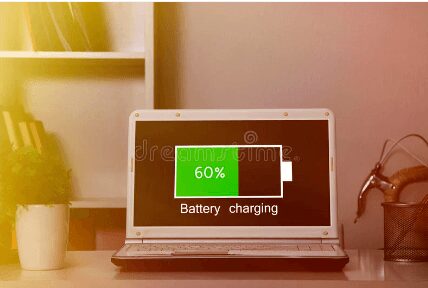Are laptop chargers allowed in carry-on luggage?

Are laptop chargers allowed in carry-on luggage? If you’re planning a trip to a destination with international airports, you must know if you can bring certain items in your carry-on luggage. Many people travel with laptops, cell phones, and other electronics, but there are some things that you absolutely cannot take on a plane. In this article, we’ll go over which items you can take on a flight and which items you absolutely cannot take on a plane.
Traveling with electronics such as laptops and smartphones has become common for many individuals. However, the question remains, can you bring your laptop charger in your carry-on luggage? The answer is not as straightforward as one may think, as it depends on various factors, such as the airline and airport regulations.
Airline Policies
Most airlines do not have specific restrictions on carrying laptop chargers in carry-on luggage. However, confirming their policy with your airline before traveling is always a good idea. Some airlines may restrict the type of charger or the number of chargers you can carry in your carry-on luggage.

For instance, airlines such as American Airlines and Delta allow passengers to bring laptop chargers in their carry-on luggage but may have restrictions on the type of charger. They may allow only chargers built into the laptop or those small enough to be carried in a personal item.
Airport Regulations
Airport regulations vary greatly, and it is always a good idea to check with your airport before traveling to confirm their restrictions on carrying laptop chargers in carry-on luggage. Some airports may have restrictions on the size of the charger, while others may have restrictions on the number of chargers you can carry.
For instance, some airports may allow you to bring one laptop charger in your carry-on luggage but may not allow you to bring additional chargers for other electronic devices. On the other hand, other airports may allow multiple chargers as long as they fit within the size restrictions for carry-on luggage.
Lithium-ion Batteries and Charger Restrictions
Lithium-ion batteries are commonly used in electronic devices, including laptops, smartphones, and chargers. The International Air Transport Association (IATA) has regulations regarding the transport of lithium-ion batteries, including laptop chargers, in carry-on and checked luggage.
According to the IATA, laptop chargers and batteries must be carried in the cabin of the aircraft, not in checked luggage, and must be placed in the passenger’s carry-on baggage or on their person. The IATA also has restrictions on the number of spare batteries that can be carried in carry-on luggage, and these restrictions may vary depending on the watt-hour rating of the batteries.
Do chargers count as electronics on a plane?
Yes, chargers are considered electronics when traveling on an aircraft. Electronic devices, including chargers, are usually allowed in carry-on and checked baggage. However, it is important to note that some airlines may have restrictions or regulations regarding using electronic devices on a flight, such as limiting their use during takeoff and landing.
Additionally, due to safety concerns, there may be restrictions on the types of chargers allowed on an aircraft, such as those with lithium-ion batteries. It is recommended to check with the airline before traveling to determine their policies regarding electronic devices, including chargers.
Are laptop chargers lithium?
Most laptop chargers use lithium-ion batteries. Lithium-ion batteries are commonly used in laptops due to their high energy density and long battery life compared to other battery types. These batteries use lithium-ion in the electrolyte, allowing for efficient charge and discharge cycles, making them ideal for portable electronics like laptops.
A charging circuit manages the charging process in the laptop and charger, which regulates the voltage and current going into the battery to ensure safe and efficient charging.

How do I know if my charger is lithium?
To determine if your charger is for a lithium-ion battery, you can follow these steps:
Check the label or product specifications:
Most manufacturers label the type of battery the charger is designed for on the product or packaging. Look for keywords such as “Li-ion,” “lithium-ion,” or “Li-poly” to indicate the charger is suitable for a lithium-ion battery.
Check the voltage and amperage output:
Lithium-ion batteries typically require a charger with a specific voltage and amperage output. Look for this information on the label or in the product specifications, and compare it to the specifications for your battery.
Consult the manual:
Your device’s manual or user guide should indicate its battery type and the recommended charger specifications. If your device uses a lithium-ion battery, it should specify that the charger must be designed for lithium-ion batteries.
Observe the charging behavior:
If your battery is not charging properly, it could indicate that the charger is not designed for a lithium-ion battery. Lithium-ion batteries require a constant voltage charging algorithm, and if the charger is not designed for this, it could result in overcharging, which can be dangerous.
By following these steps, you should be able to determine if your charger is designed for a lithium-ion battery. It is best to consult the manufacturer or a qualified technician if unsure.
Conclusion!
In conclusion, laptop chargers are generally allowed in carry-on luggage. Still, it is always a good idea to check with your airline and airport before traveling to confirm their restrictions. Most airlines do not have specific restrictions on carrying laptop chargers in carry-on luggage, but some may have restrictions on the type of charger or the number of chargers that can be carried.
Airports may also restrict the size and number of chargers that can be carried in carry-on luggage. The IATA has regulations for transporting lithium-ion batteries, including laptop chargers, in carry-on and checked luggage. These regulations must be followed to ensure the safe transport of these items.
FAQs.
Do you have to take laptop chargers out at airport security?
Laptop chargers and other electronics can be carried in carry-on and checked luggage. However, placing them in carry-on luggage is recommended if checked baggage is lost or delayed.
Can you carry chargers in hand luggage?
Yes, you can carry chargers in your hand luggage on a plane. However, it is recommended to check the regulations of the specific airline and airport you are flying with, as there might be restrictions on the type or size of charger or power bank you can bring.
Why are chargers not allowed in check-in baggage?
Chargers are generally not prohibited in carry-on or checked baggage. Still, it is always best to check the airline and airport security guidelines before traveling, as policies can change.
Do chargers go in carry-on or luggage?
Some airports may restrict items such as power banks or lithium batteries, which could impact the ability to carry chargers.



